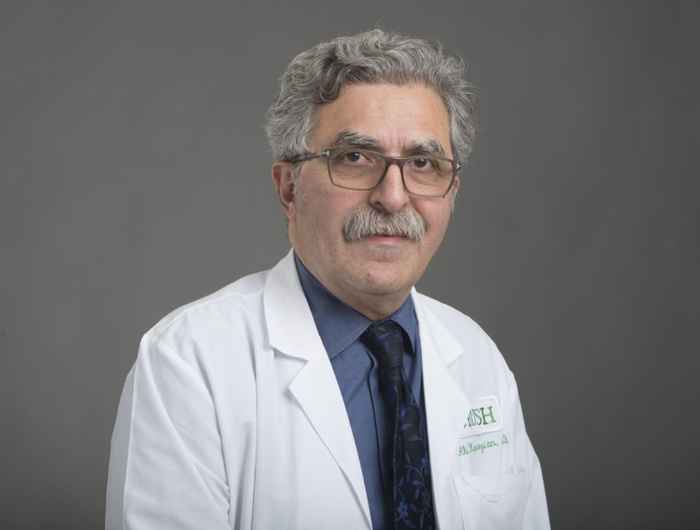seminar by Prof. dr. Ali Keshavarzian
- Date
- 18 June 2025
- Time
- 16:00 -17:00
- Location
- Science Park 904
- Room
- D1.111
- Organised by
- Sahar El Aidy

Speaker: Prof. dr. Ali Keshavarzian
Dept. Internal Medicine, RUSH University, Chicago, USA
abstract
Ali Keshavarzian, Robin Voigt, Maliha Sheikh, Christopher G. Goetz.
Parkinson’s disease (PD), the second most common form of neurodegeneration, is a chronic and progressive movement disorder and the fastest-growing neurological condition worldwide, affecting over 6 million individuals. Alpha-synuclein aggregation is a hallmark of PD pathology, whereby the protein misfolds into insoluble fibrils that accumulate as Lewy bodies within dopamine (DA) neurons leading to neuronal loss. Inflammation and oxidative stress appear to be the primary mechanisms of alpha-synuclein misfolding, but the source and underlying mechanism of inflammation/ oxidative stress- induced alpha-synuclein aggregation are not well established. Better understanding of PD pathogenesis and molecular mechanisms of alpha-synuclein aggregation are required to identify tools for early diagnosis (before the majority of DA neurons are lost) and disease modifying strategies. Genetic factors only account for 10-25% of the overall risk for developing PD, leaving age and environmental factors as prime risk candidates, including chemical exposures, diet, stress, air/light pollution. Recent studies suggest that Gut and the oro-nasal cavity are the primary gates for these environmental factors to interact with the host, and their residing microbiota are the potential key to modulate the biological consequences of this interaction. In this presentation, I will overview current data to support the hypothesis that: (1) disruption of the microbiota community(dysbiosis) can cause local and systemic inflammation and oxidative stress, (2) environmental factors that are known to increase risk of PD also cause dysbiosis, (3) Patients with PD and animal models of PD have gut and oro-nasal microbiota dysbiosis and intestinal leak, (4) PD patients have dysfunctional intestinal EEC function that could be , at least in part, responsible for sub-optimal GLP-1 response to meal and low level of neuroprotective molecule, GLP-1, might promote lower resiliency of the DA neurons to environmental and intrinsic neurotoxins,(5) Our intestinal organoids experiments suggest that low resiliency of gut to oxidative and inflammatory stressors might be a contributing factors in the observed disrupted intestinal barrier integrity and gut-derived inflammation in PD Patients, (6) a disrupted gut-brain axis provides a logical and hypothesis-testing framework to approach the pathogenesis of PD and (7) gut microbiota -directed interventions have a potential to mitigate PD relevant abnormal biological processes and thus serve as future disease modifying interventions.